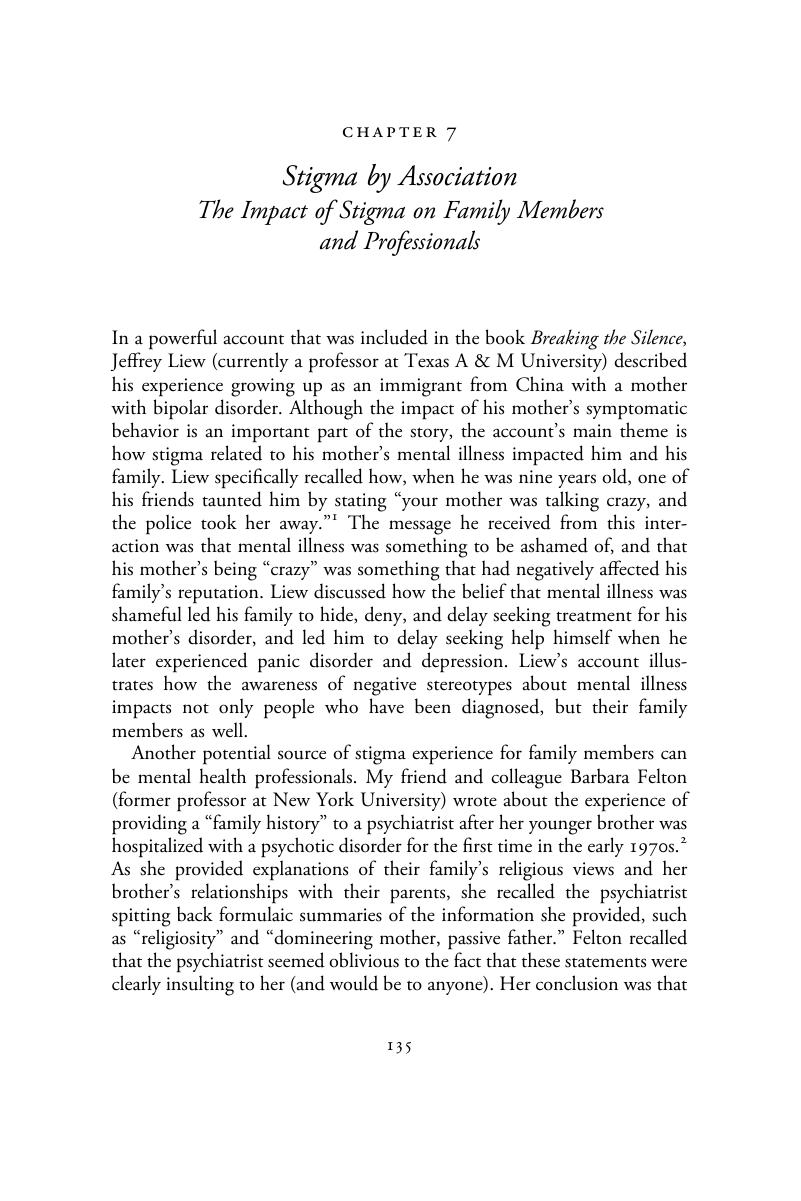Book contents
- Written Off
- Written Off
- Copyright page
- Dedication
- Contents
- Figures
- Tables
- Foreword
- Acknowledgments
- Chapter 1 Why Stigma Matters
- Chapter 2 Does Mental Health Stigma Really Exist?
- Chapter 3 What Does Stigma Look Like?
- Chapter 4 Who Stigmatizes?
- Chapter 5 Responses to Stigma among People Diagnosed with Mental Illnesses
- Chapter 6 Discredited
- Chapter 7 Stigma by Association
- Chapter 8 The Possibility of Change
- Chapter 9 The Possibility of Change and Interventions
- Chapter 10 Where Do We Go from Here?
- Index
- References
Chapter 7 - Stigma by Association
The Impact of Stigma on Family Members and Professionals
Published online by Cambridge University Press: 21 December 2017
- Written Off
- Written Off
- Copyright page
- Dedication
- Contents
- Figures
- Tables
- Foreword
- Acknowledgments
- Chapter 1 Why Stigma Matters
- Chapter 2 Does Mental Health Stigma Really Exist?
- Chapter 3 What Does Stigma Look Like?
- Chapter 4 Who Stigmatizes?
- Chapter 5 Responses to Stigma among People Diagnosed with Mental Illnesses
- Chapter 6 Discredited
- Chapter 7 Stigma by Association
- Chapter 8 The Possibility of Change
- Chapter 9 The Possibility of Change and Interventions
- Chapter 10 Where Do We Go from Here?
- Index
- References
Summary

- Type
- Chapter
- Information
- Written OffMental Health Stigma and the Loss of Human Potential, pp. 135 - 157Publisher: Cambridge University PressPrint publication year: 2018

